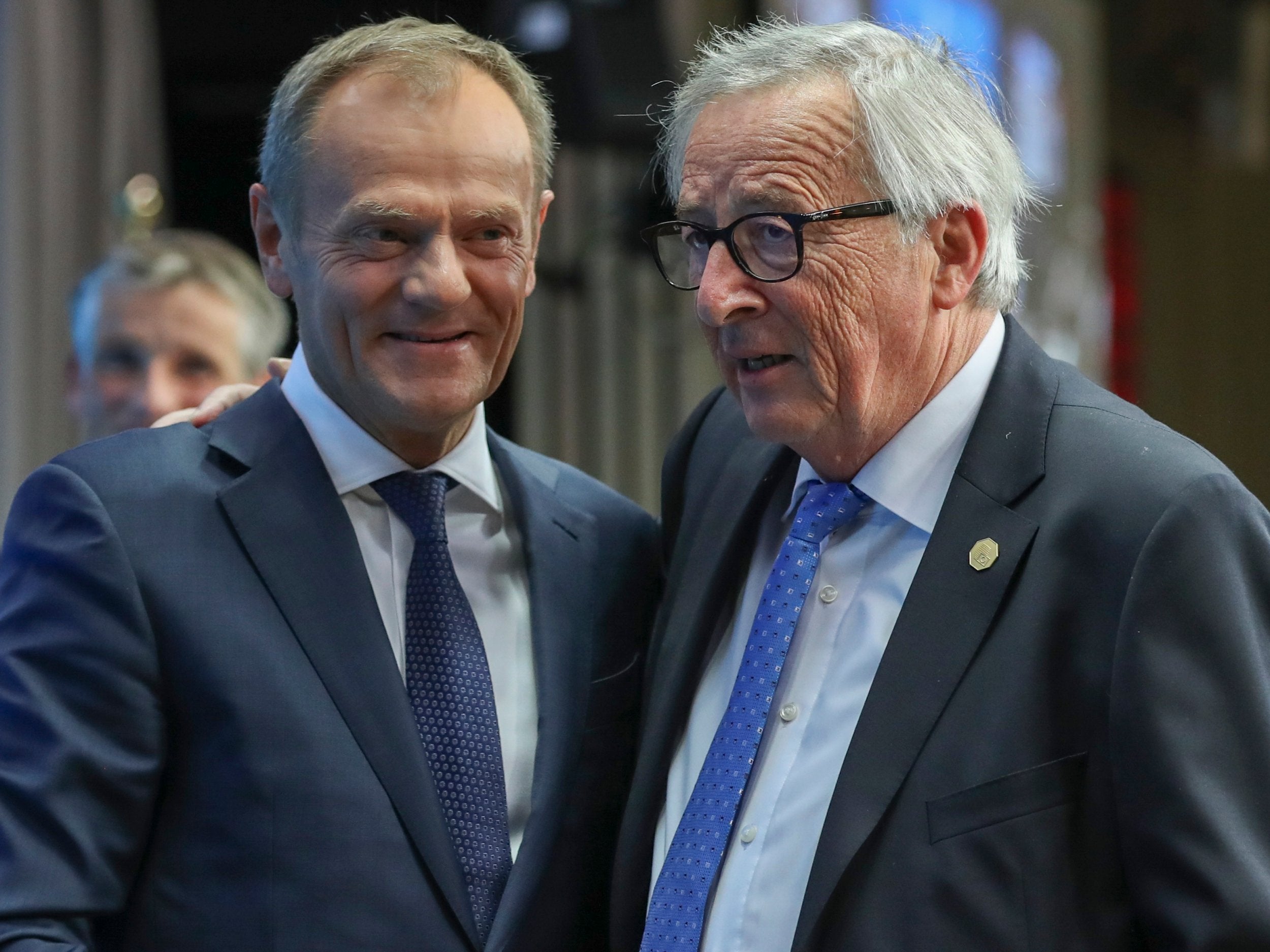Will the European Council really ratify a Brexit deal which has left UK politicians seething?
Analysis: Officials in Brussels hope representatives of the remaining EU members will not seek to reopen negotiations, says Jon Stone


EU leaders will meet in Brussels on Sunday to sign off the Brexit deal struck with Theresa May, but you could be forgiven for asking what the point of the gathering is.
After all, barring a last minute climbdown by Theresa May’s detractors back home, the parliamentary arithmetic in Westminster looks fairly certain to defeat the plan.
Still, the 27 countries will go through the motions this weekend, unless there’s some kind of intervention to oust the prime minister during the week. It would be a huge upset if they did not sign the agreement.
There will not be any negotiation on the withdrawal agreement and its controversial backstop – that, as far as the EU is concerned, is settled. Many countries have said as much publicly, in the face of cabinet Brexiteers demanding a rethink.
But the second part of the deal, the future relationship, is far from sealed. If anything, EU states believe their negotiators might have given away too much to Britain: some are unhappy about concessions given with little in return, and want quid pro quos like guaranteed access to British waters for their fishing fleets.
If there are changes there, things could get even trickier for the prime minister at home – but these are real countries fighting for their own interests, not fantasy negotiating partners only committed to making things easy for the prime minister.
None of the details for the summit are finalised yet, with an agenda set to be released later this week. We’re not sure at this point whether actual negotiation will take place at it, or whether it will just be a glorified rubber stamp. Brussels is known to favour the latter.
Legally, the summit has to take place, because only the European Council – that is the 27 leaders meeting together in Brussels – can sign off the deal and make the political declaration about the future relationship.
Those in Brussels and other EU capitals do not like being seen to “meddle” in British politics, precisely because they know how poorly they are perceived.
They mostly stayed out of the referendum, they accepted the result, and they have mostly declined to call for a rerun or anything to that effect.
But it is possible some may break the habit of a lifetime at the gathering and urge British members of parliament to back the deal. If they do not do it directly, they might apply pressure through other means – perhaps by warning of the prospect of no deal if it is voted down.
This will be a difficult sell, however. Donald Tusk, the president of the European Council, said as recently as last week that Brexit could be stopped if Britain wanted. If the deal is voted down, staying in is still an option. And there is clearly not a majority for a no-deal departure in the House of Commons.
But despite conspiracy theories from both some Brexiteers and the odd Remainer, everyone around the summit table will want a deal – just not necessarily at any cost.
Join our commenting forum
Join thought-provoking conversations, follow other Independent readers and see their replies
66Comments